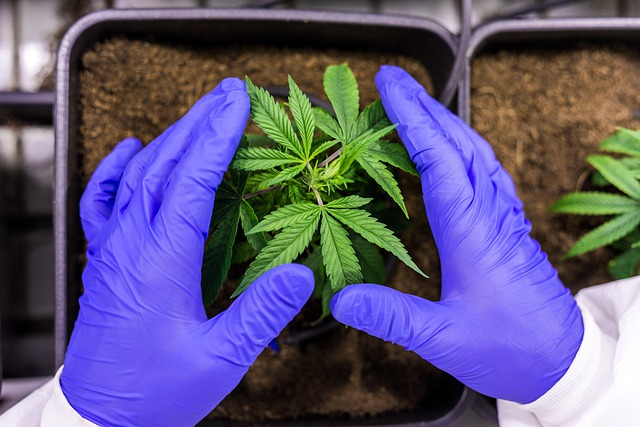THCa Flower: Unlocking Its Potential for Health and Wellness
THCa Flower: Unlocking Its Potential for Health and Wellness
In recent years, the cannabis plant has gained significant attention for its potential health benefits. Among its many compounds, THCa (tetrahydrocannabinolic acid) is emerging as a promising component with unique properties. Unlike Benefits of fresh THCa Flower, which is known for its psychoactive effects, THCa is non-psychoactive and offers a range of potential health benefits. This article explores the potential of THCa flower in promoting health and wellness.
Understanding THCa: The Basics
THCa is a cannabinoid found in raw and live cannabis plants. It is the precursor to THC, the compound responsible for the “high” associated with cannabis use. When cannabis is heated through smoking, vaping, or cooking, THCa undergoes decarboxylation, converting into THC. This transformation is why raw cannabis does not produce psychoactive effects.
Research into THCa is still in its early stages, but preliminary studies suggest it may have several therapeutic properties. These include anti-inflammatory, neuroprotective, and anti-emetic effects, among others.
Potential Health Benefits of THCa
Anti-Inflammatory Properties
Inflammation is a natural response of the body to injury or infection, but chronic inflammation can lead to various health issues. THCa has shown promise in reducing inflammation, which could be beneficial for conditions such as arthritis, inflammatory bowel disease, and other inflammatory disorders.
- A study published in the “Journal of Pharmacology and Experimental Therapeutics” found that THCa flower exhibited significant anti-inflammatory effects in animal models.
- Patients with arthritis have reported reduced pain and improved mobility when using THCa-rich products.
Neuroprotective Effects
Neurodegenerative diseases like Alzheimer’s and Parkinson’s are characterized by the progressive loss of nerve cells. THCa’s neuroprotective properties may offer a new avenue for treatment and prevention.
- Research indicates that THCa may help protect brain cells from damage and reduce the risk of neurodegenerative diseases.
- Animal studies have shown that THCa can reduce neurotoxicity and improve cognitive function.
Anti-Emetic Benefits
Nausea and vomiting are common symptoms associated with various medical conditions and treatments, such as chemotherapy. THCa has been identified as a potential anti-emetic agent, providing relief for patients experiencing these symptoms.
- Clinical trials have demonstrated that THCa can effectively reduce nausea and vomiting in patients undergoing chemotherapy.
- Patients have reported improved quality of life when using THCa to manage these symptoms.
THCa in the Wellness Industry
The wellness industry is increasingly incorporating cannabis-derived products, and THCa flower is no exception. Its non-psychoactive nature makes it an attractive option for those seeking the benefits of cannabis without the high.
THCa in Dietary Supplements
THCa is being used in various dietary supplements aimed at promoting overall health and wellness. These supplements are often marketed for their potential to support immune function, reduce inflammation, and enhance mental clarity.
- Consumers are turning to THCa supplements as a natural alternative to traditional anti-inflammatory medications.
- Some wellness brands are incorporating THCa into their product lines, offering tinctures, capsules, and edibles.
Topical Applications
Topical products containing THCa are gaining popularity for their potential to alleviate localized pain and inflammation. These products are applied directly to the skin, allowing for targeted relief without systemic effects.
- THCa-infused creams and balms are being used by individuals with joint pain and muscle soreness.
- Users report reduced pain and improved skin health with regular use of THCa topicals.
Case Studies and Real-World Examples
Several case studies highlight the potential benefits of THCa for health and wellness. For instance, a patient with rheumatoid arthritis reported significant pain reduction and improved joint function after incorporating THCa into their treatment regimen. Another case involved a cancer patient who experienced relief from chemotherapy-induced nausea and vomiting with THCa use.
These real-world examples underscore the potential of THCa as a therapeutic agent. While more research is needed to fully understand its effects, these cases provide promising insights into its applications.
Challenges and Considerations
Despite its potential, there are challenges associated with the use of THCa. One major hurdle is the lack of comprehensive research and clinical trials. The legal status of cannabis in many regions also complicates access to THCa products.
Consumers should be aware of the variability in product quality and potency. It is advisable to choose products from reputable sources that provide third-party lab testing to ensure safety and efficacy.
Conclusion
THCa flower holds significant promise for health and wellness, offering potential benefits without the psychoactive effects of THC. Its anti-inflammatory, neuroprotective, and anti-emetic properties make it an attractive option for those seeking natural alternatives for various health conditions. As research continues to unfold, THCa may become a key player in the wellness industry, providing new opportunities for therapeutic applications.
While challenges remain, the growing interest in THCa and its potential benefits suggest a bright future for this cannabinoid. As more studies are conducted and awareness increases, THCa could play a vital role in promoting health and well-being.

